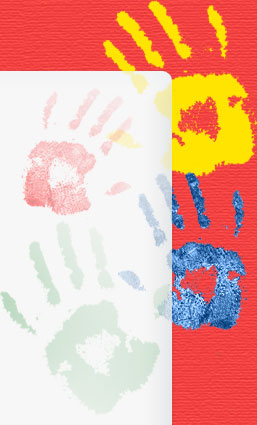Discovery Playschool
Hours of Operation
Discovery Playschool operates Monday through Friday, year-round.
Our preschool classroom is intended for children ages 2 ½ - 5 years old. Our infant classroom serves children starting at 6 weeks old. Our summer care option is open to children up to 12 years old.
Preschool is taught 8:00-11:30 am, with wraparound care available starting at 5:30 am and going until 5:00 pm.
Parents may select full-time, part-time, or full-time-plus depending on the number of hours per week the child will attend. Drop-in care is offered as available.
Tuition
A non-refundable $100.00 registration fee is charged for each session when a child is enrolled. This fee is separate from the tuition. Tuition is . Tuition is billed weekly. All supply fees are included in our tuition charges. Discovery does accept payment from Wisconsin Shares in the form of child care assistance.
Payment for each week of attendance is due on Monday at the start of the period. A $10.00 late fee will be imposed if tuition is late. Tuition that is two weeks late may result in termination of a child’s enrollment. A $25.00 returned check fee will be charged for each check returned to the preschool for insufficient funds.
Enrollment
Enrollments are accepted on a first-come, first-served basis with  currently enrolled families given priority. The waiting list is handled the same way. Children turning 2 ½ during the school year may be enrolled in the preschool classroom as soon as the reach age 2 ½.
currently enrolled families given priority. The waiting list is handled the same way. Children turning 2 ½ during the school year may be enrolled in the preschool classroom as soon as the reach age 2 ½.
Forms
Arrival to and departure from Discovery
- Children are not to be at preschool more than 5 minutes before class starts or beyond closing time. Preschool teachers have many duties in preparation for class and clean-up after school. Your consideration in this matter is expected and appreciated. A flat $5.00 fee will be required each time the child is picked up more than 5 minutes late. Late fees are to be paid before the child may return to school.
- Walking to school- Children who walk to or from school must be accompanied by an adult. This is a state regulation devised for the protection of the child.
- Help with clothing- Parents are responsible for helping their children with their outer clothing before and after class.
- Entering the classroom- Parents should come into the classroom both when dropping their child off and picking them up. This way the parent can note day-to-day changes in the classroom environment and can exchange important information with the teacher. The child’s mailbox should be checked daily for any new projects or information.
- Release of the child- One of our enrollment forms requires the names of the person(s) to whom your child may be released. If someone other than the parent of designated person(s) is to pick the child up, the school must be notified in writing by the parent. Without a note, the child cannot be released.
- Once a parent has left a child in the care of the teacher, the teacher is responsible for knowing the whereabouts of the child at all times until he or she is picked up by a parent or designated person.
- Parents are responsible for their children near the stream and parking lot. Students are not allowed to play on or near the retaining wall.
- Parents are responsible for notifying the teacher if their child is going to be absent that day. This call needs to be made in the 15 minutes prior to class time. If a student is absent without notification from a parent, the teacher will contact the parent at the emergency number. However, this detracts from the teacher’s ability to interact with the children and is not desirable.
Clothing
- Children should wear washable playclothes to allow comfort and freedom of movement. A child may spend a lot of time on the floor, usually on a rug. The child may spill glue, juice, paints, etc and should be dressed accordingly.
- Children should wear sneakers or shoes with similar soles
- Children who attend Discovery Playschool should be at least partially toilet trained. If the child is not completely trained, he or she needs to wear a pull-up during class to eliminate messes in the classroom. If an accident should occur, the soiled clothes will be sent home in a plastic bag and your child will be dressed in clothes that belong to the school to wear home. Please wash and return them as soon as possible.
- Children should be dressed appropriately for the weather. Schmitt regulates building temperature as required by law for nursing homes. Our classroom tends to be warm, so several layers are not necessary.
- Weather permitting, children will be outside. Therefore, please dress them for the weather- i.e. boots, snow pants, hats, gloves, etc.
Meals & Snacks
- Parents will need to supply lunch for children that are at Discovery during lunchtime. Families are encouraged to provide healthy meals that provide the necessary energy for children to participate in a day of learning and play. Soda and candy may not be sent in lunches.
- If a family forgets to send lunch with their child, a meal will be provided by Discovery at a cost of $5.00.
- Discovery will provide morning and afternoon snacks and drinks for all children in attendance. Snacks will be nutritious and follow guidelines put forth by DFS. See page 10 for an example list of acceptable and potential snacks.
- If a child has a food allergy or restricted diet, parents should bring it to the director’s attention so that special arrangements can be made.
- Children will wash their hands with soap and water before snack time.
- Children will be encouraged to try new foods, but will not be forced to eat or drink if the choose not to.
- A calendar with each days snack and drink filled in is posted near the door.
Injury, Illness, & Parent Notification
- Please do not bring your child to school when he or she appears to be ill.
- If the child becomes ill at school, the child will be isolated from the other students and the parent will be called to pick the child up immediately.
- If a child becomes seriously ill or injured, emergency medical transportation will be provided by the Richland County EMS to the Richland Hospital at the parents’ expense. The teacher will send the student’s health records with the student and contact the parent(s) immediately; emergency contact numbers are posted on the cabinets near the sink.
- Schmitt Woodland Hills has agreed to provide an employee in less than five minutes to assist in an emergency situation should one arise.
- If the child has become ill with any of the following, either a doctor’s written permission form must be obtained or the illness must run its full course and the child be symptom free before the child can return to school: Bacteriological-diarrheal infection, infectious hepatitis, infectious mononucleosis, tuberculosis or any other contagious condition- i.e. chicken pox, head lice, whooping cough.
- A child with a Strep infection may not return to school until he has been on antibiotics for 24 hours.
- Parents are required to notify the teacher if their child has been exposed to or has a contagious disease and there exists a possibility of having exposed their class. Other members of the school will be notified of the incident, but the name of the child will be kept confidential.
- If a child receives a minor injury at school, the teacher will administer any first aid required (wearing rubber gloves if blood is present) and notify the parent when the child is picked up from school. The teacher will also record the incident in the medical log journal.
- The teacher will only administer medications in extreme situations.
- Authorization slips must be signed by a parent and a physician when it is necessary for a teacher to administer medication to a student.
- In order to reduce the spread of illness between students, they will be instructed to wash their hands with soap and water before snack time, after using the bathroom, and at any time they may have a bodily secretion on their hands (i.e. after blowing their nose). The teacher shall follow the same guidelines. Bodily secretions on surfaces will be immediately cleaned up with soap and water and then disinfected by the teacher.
- In the event a surface becomes contaminated by a bodily fluid (i.e. blood, vomit, feces), the teacher will wear rubber gloves and clean the mess immediately with paper towels. The surface will then be disinfected with a bleach and water solution. The gloves and paper towels will be disposed of in a tied plastic bag thrown into a garbage can with a lid. The teacher will then wash his or her hands with soap and warm water.
Discipline
- Our policy on the discipline of students is one that provides for positive guidance, redirection, and the setting of clear limits. This disciplinary policy shall be designed to help the child develop self-control, self-esteem, and respect for the rights of others. Examples of appropriate disciplinary action include: positive guidance strategies, modeling proper behavior, positive reinforcement of desired behavior, speaking with parents and time-outs of no more than 5 minutes (used only for children 3 or older).
- Punishments which are humiliating or frightening to a child are prohibited. These include: spanking, hitting, pinching, shaking, or inflicting any other form of corporal punishment; verbal abuse, threats, or derogatory remarks about the child or child’s family; binding or tying to restrict movement or enclosing in a confined space such as a closet, locked room, box, or similar cubicle; withholding or forcing snacks or naps
- Time-outs: If strategies of positive guidance, modeling proper behavior, or positive reinforcement do not work, the child may be removed from the situation and placed in a designated area for no more than five minutes. Time-outs may not be used on children under 3 years of age.
- Fussing, crying, or distraught children will be moved to a quiet area of the room and the teacher will talk with him or her to try to resolve the issue bothering the child. This strategy is helpful in helping children learn to effectively manage their emotions. If this does not work, the teacher will redirect the child to an activity he or she finds interesting. The child will not be punished.
Visitors
Records
All children’s records are confidential and available to his or her parents or legal guardian upon request. The preschool maintains a medical log which contains notations on medications and injuries. Entries in this log regarding an individual child are available to the parents or guardians. These records ar
e reviewed periodically by the Discovery president and a state inspector.The teacher will keep daily student attendance records in a log and know the number and names of children in attendance on any given day.
Liability
Discovery Playschool, Inc. is a nonprofit corporation organized by  parents of students. Its Board of Directors is comprised of concerned
parents of students. Its Board of Directors is comprised of concerned  parents who have generously volunteered their time. Rather than
parents who have generously volunteered their time. Rather than  increase tuition, thereby precluding the ability of some children to
increase tuition, thereby precluding the ability of some children to  attend, the corporation does not offer its Board of Directors Errors and
attend, the corporation does not offer its Board of Directors Errors and  Omissions Liability Coverage. However, the corporation does have
Omissions Liability Coverage. However, the corporation does have  liability coverage for the school. By enrolling your child at Discovery
liability coverage for the school. By enrolling your child at Discovery  Playschool, Inc. you agreed to hold individual members of the Board of
Playschool, Inc. you agreed to hold individual members of the Board of  Directors harmless for any claims you may have against them by virtue
Directors harmless for any claims you may have against them by virtue  of their position as a board member for Discovery Playschool, Inc.
of their position as a board member for Discovery Playschool, Inc.
Teacher/Parent/Child Communications
Email will be used as a major means of communication with families. Parents MUST check their email regularly so as not to miss important information.
The teacher will put a daily lesson plan on the bulletin board in the hallway. Other important communications may also be posted on the door or in the hallway.
Notes may also be placed in a child’s backpack, so it must be checked daily.
Each semester you will be offered the chance for a parent/teacher conference to discuss your child’s progress.
Equipment/Toy Care
Fabric toys, costumes, etc will be washed in a washing machine.
Rest mats are used by the same child every day and laundered bi-weekly.
Technology
Students are not permitted to have electronic devices (i.e. phone, tablet, etc) at school. If they bring an electronic device to school, it will be put in the director’s office until it can be returned to the child’s parent at the time of pick up.
Discovery emphasizes creative play and will not include use of videos/television in the daily schedule unless they directly pertain to the curriculum. Any content will be previewed by the teacher and selected to provide increased depth or breadth of the current topic of study.
Fire, Tornado, and Other Emergencies
- In the event of a fire alarm, the teacher will gather the attendance book and assemble the children in a line at the classroom door. The class will then proceed out the door to the right and around the corner to the exit door. The teacher will then take the children to a safe location and check attendance records to ensure that all children are accounted for. The class will remain outside until the all clear is given to return to the building. A map showing the evacuation route is posted beside the classroom door.
- In the event of a tornado siren, the teacher will gather a flashlight, portable radio, and the attendance book and assemble the children in a line at the classroom door. The class will then proceed across the hall to the interior storage room. The teacher will check attendance records to ensure that all children are accounted for. The children will be instructed to sit with their backs against the wall with their knees bent and their heads covered with their arms. The class will remain in the storage room until the all-clear is issued by WRCO or Schmitt Woodland Hills staff. The tornado procedure is posted beside the classroom door.
- Fire and tornado drills will be held monthly and recorded in a log.
- Schmitt Woodland Hills has agreed to provide an employee in less that five minutes to assist in an emergency situation should one arise.
- If the building loses services that will not let class proceed as usual (i.e. plumbing failure), parents will be called to pick up children. Most service losses will not affect our ability to hold class because our class periods are so short.
- If the teacher finds that a child is missing from her care, the teacher shall immediately call 911 to report the missing child. The teacher will then request assistance from Schmitt Woodland Hills employees in searching the facility and grounds for the missing child. The child’s parent(s) will also be notified immediately. The president of the board will be called to come take control of the center until the situation is resolved.
Equal Opportunity
- This preschool does not discriminate between persons on the basis of race, color, national origin or ancestry, sex, religion, handicap, sexual orientation, or political persuasion.
- The preschool shall not teach any religious curriculum or participate in religious activities or training. Holidays will be celebrated secularly.
Quick Downloads:
The majority of Discovery Playschool's Information and Policies packet is available below. Please click the link at the bottom of the page to download our complete Information and Policies Packet.










